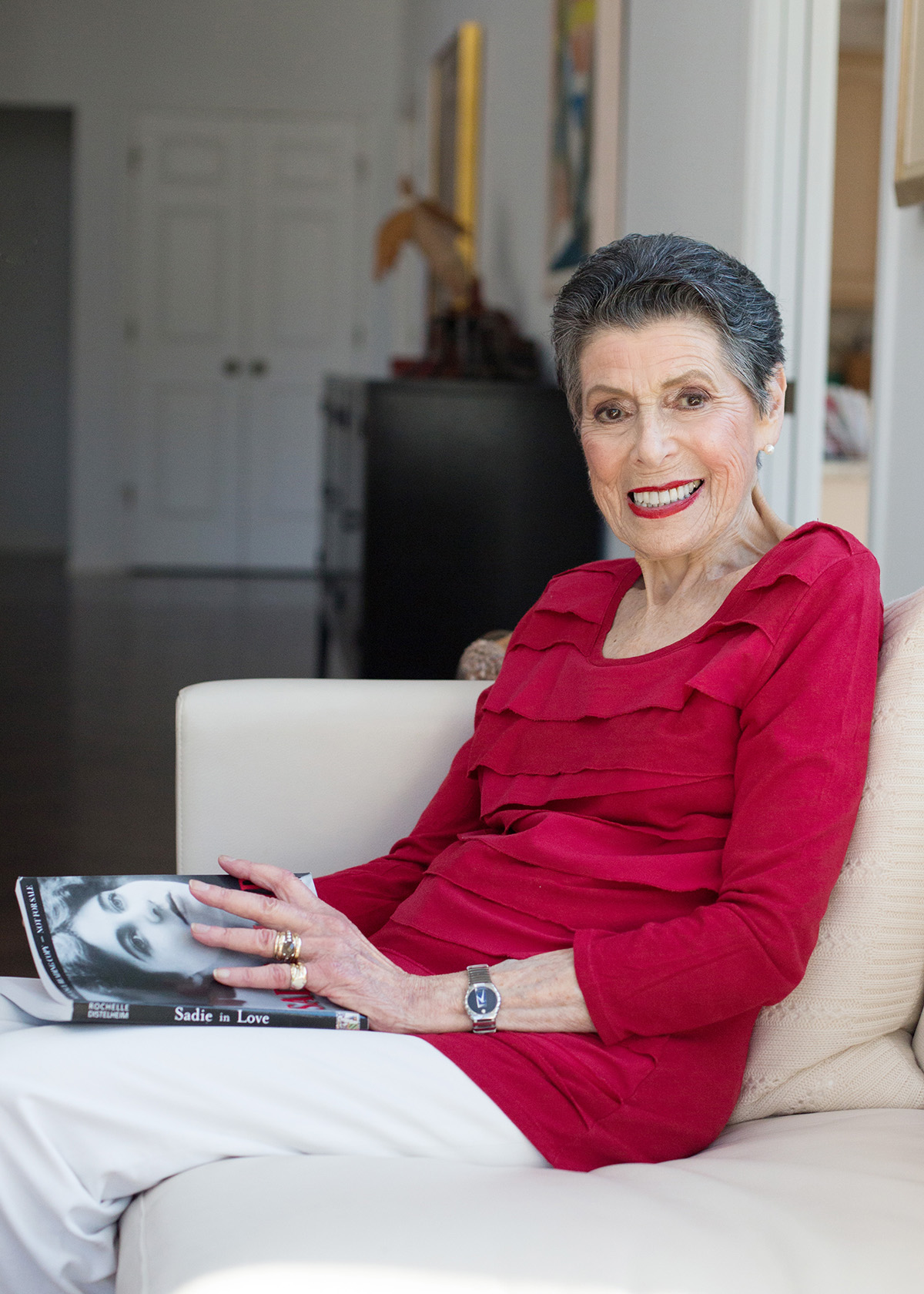Rochelle Distelheim dreamt of becoming a writer from the time she was a child growing up on Chicago’s West Side, when she would often spend her Saturday afternoons walking back and forth between her family’s apartment and the public library, reading the one book she was permitted to check out at a time, finishing it by the time she reached her front door, and then turning right back around to go back and check out another. She honed her skills by writing for her school newspapers, from grade school onward to Northwestern University’s Medill School of Journalism, where she wrote a column about college life as she worked toward earning her Bachelor of Science degree in 1950.
In the years immediately following her college graduation, during which she married and worked in an advertising firm, and then in the years following that, when she was raising her three young children, she wrote opinion pieces which were published in Chicago newspapers. This was the 60’s, a decade of change. The Women’s Movement was gaining momentum, and the National Organization for Women was formed. After attending NOW’s first meeting in the Chicago suburbs and raising her hand a few times too many, Rochelle was elected President. Empowered, and eager to be published, she convinced the editor of her suburban newspaper to let her write a weekly column, “The Liberated Woman.” In addition, she wrote satirical “Liberated Women-themed” poems, many of which were published in national magazines.
Read More
Always eager to improve her craft, Rochelle joined a weekly writers’ workshop that became a vital part of her writing life and would remain so for the following five decades. In the 70’s, she returned to school and earned an MFA in Creative Writing from the University of Illinois, after which she began teaching Creative Writing at Mundelein College (now Loyola University) in Chicago. Shortly thereafter, she sold a story to McCall’s Magazine, catching the attention of one of McCall’s nonfiction editors. Soon she was flying around the country, covering a wide range of stories about “ordinary” women rising to extraordinary challenges for McCall’s and other national magazines, such as Good Housekeeping, Ladies Home Journal, Glamour, Working Woman, and Working Mother.
As time went on and she turned her attention to writing fiction, her short stories earned numerous literary awards, including The Katherine Anne Porter Prize, the Gival Press Short Story Award, the Salamander Second Prize in Short Story, Illinois Arts Council Literary Awards and Fellowships, Ragdale Foundation Fellowships and several nominations to both The Best American Short Stories and The Pushcart Prize.
Eventually, Rochelle set her sights on writing a novel, and when she had completed it, the yet-to-be-published manuscript was turned into a musical theatre piece, entitled Love Knots, by Joyce and Byrne Piven, co-Directors of The Piven Theater in Evanston, Illinois. Love Knots played to standing-room-only audiences throughout a summer season. Sadie in Love, the novel upon which Love Knots was based, was later published by Aubade Publishing in 2018. Jerusalem As a Second Language, Rochelle’s second novel, received both the Faulkner Society Gold Medal for Novel-in-Progress and the Faulkner Society Gold Medal for Novel. It was published by Aubade Publishing in 2020.
Both of Rochelle’s novels, as well as all of her short stories and her nonfiction portraits of the diverse women she met in her travels across the country for her magazine pieces, reveal her striking ability to empathize with others no matter what their situation. That empathy is evident in other areas of her life as well: In her tireless work to promote the rights of women, of immigrants, of refugees, of vulnerable children and of low income families. In her dedication to combating hunger, injustice and hate crimes. In her determination to help new writers find ways to have their voices heard. And in her commitment to supporting scholarships for women at the Medill School of Journalism, so that all talented students, regardless of their financial challenges, might realize that dream of becoming a writer that had fueled her since childhood.
Rochelle passed away in June, 2020, three months prior to the publication of Jerusalem As a Second Language. She had been living in a Chicago suburb, near her three daughters and three grandchildren. She had lost her husband, Dr. Irving Distelheim — with whom she had shared a love of philanthropy, travel, history, literature, art, music, ballet and each other — in 2018, after sixty-six years of marriage.

